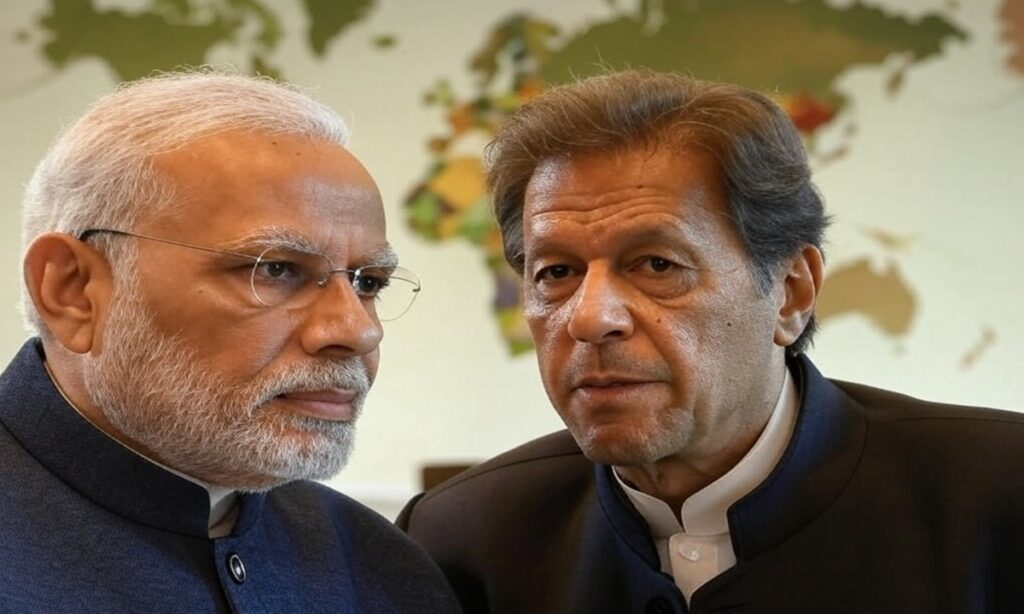India-Pakistan Tensions Escalate: Ceasefire Violations Continue as Diplomatic Crisis Deepens
Tensions between India and Pakistan have reached a boiling point following a deadly terror attack in Pahalgam, with ceasefire violations and diplomatic fallout pushing the nuclear-armed neighbors closer to conflict. The international community watches with bated breath as both nations trade accusations and warnings.
By: New Delhi Post Desk, New Delhi
Pahalgam Attack Triggers Escalation
On April 22, 2025, a devastating terrorist attack in Pahalgam, Jammu and Kashmir, claimed the lives of 26 people, mostly tourists, including 25 Indians and one Nepali citizen. India has accused Pakistan of supporting the attack, a claim Islamabad denies. In response, India suspended the Indus Waters Treaty, closed the Attari-Wagah border, expelled Pakistani diplomats, and revoked visas for Pakistani nationals. Pakistan retaliated by closing its airspace to Indian airlines, suspending trade, and warning that any attempt to divert Indus River water would be considered an “act of war.”
Ceasefire Violations Intensify Along LoC
Since April 24, Pakistani troops have engaged in repeated ceasefire violations along the Line of Control (LoC), with the latest incident marking the sixth consecutive night of unprovoked firing. On the night of April 29-30, firing was reported in Naushera, Sunderbani, Akhnoor, Kupwara, and Baramulla sectors, extending to the Pargwal sector along the International Border. The Indian Army responded swiftly, with no immediate casualties reported. The United Nations has urged both nations to exercise “maximum restraint” to prevent further escalation.
Diplomatic and Military Developments
On April 30, Prime Minister Narendra Modi chaired a Cabinet Committee on Security (CCS) meeting, granting the armed forces “full operational freedom” to decide the timing, mode, and targets of retaliation. Defence Minister Rajnath Singh briefed Modi on military preparedness, while Foreign Minister S. Jaishankar engaged with UN Secretary-General Antonio Guterres, who offered mediation. Pakistan’s Information Minister Attaullah Tarar claimed credible intelligence of an imminent Indian military action within 24-36 hours, using the Pahalgam attack as a “false pretext.” Meanwhile, Pakistan has relocated radar systems and e-warfare equipment near the border, anticipating an Indian airstrike.
Official Statements Reflect Rising Tensions
Indian External Affairs Minister S. Jaishankar, in a UN address, branded Pakistan a “rogue state” fueling global terrorism. PM Modi vowed to hunt the perpetrators “to the ends of the Earth.” On the Pakistani side, Prime Minister Shehbaz Sharif promised a “neutral, transparent probe” into the attack, while Minister Hanif Abbasi warned that Pakistan’s nuclear weapons are “not for display” and are reserved “only for India.” The UN’s Stéphane Dujarric reiterated calls for de-escalation, noting the risk of a broader conflict between the two nuclear-armed neighbors.
Tourism and Regional Impact
The fallout has severely impacted Jammu and Kashmir’s tourism sector, with 48 tourist spots in remote areas shut down as a precaution. Over 700 Pakistani nationals have left India via the Attari-Wagah border since April 24, including tourists and those seeking medical treatment. Protests between Indian and Pakistani communities have erupted in cities like London, reflecting global concerns over the escalating crisis.
X User Comments Highlight Public Sentiment
Posts on X reveal a mix of fear and frustration. One user,
@PeaceNowPls , wrote, “This India-Pakistan tension is terrifying. Both sides need to step back before it’s too late #StopTheWar.” Another,
@BharatFirst, stated, “India’s response is justified! Pakistan can’t keep sponsoring terror and expect no consequences #PahalgamAttack.” A third user,
@GlobalWatcher, commented, “Nuclear threats from Pakistan are reckless. The world needs to intervene #IndiaPakistanCrisis.”
India-Pakistan Tensions Escalate: Ceasefire Violations Continue as Diplomatic Crisis Deepens
Keep Reading
© 2025 New Delhi Post.All rights reserved


